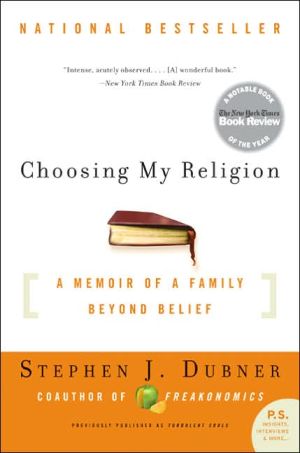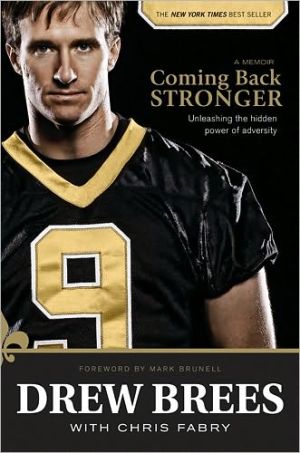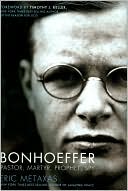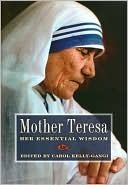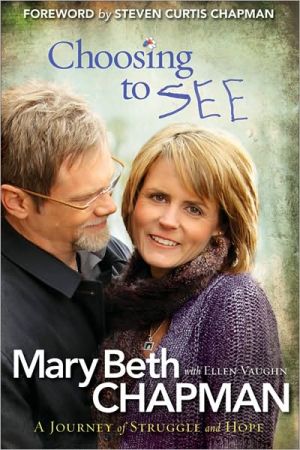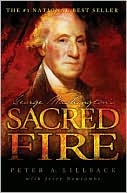Choosing My Religion: A Memoir of a Family Beyond Belief
Choosing My Religion is a luminous memoir, crafted with the eye of a journalist and the art of a novelist by New York Times Magazine writer and editor Stephen J. Dubner. By turns comic and heartbreaking, it tells the story of a family torn apart by religion, sustained by faith, and reunited by truth.
Search in google:
Turbulent Souls is a luminous memoir, crafted with the eye of a journalist and the art of a novelist by New York Times Magazine writer and editor Stephen J. Dubner. By turns comic and heartbreaking, it tells the story of a family torn apart by religion, sustained by faith, and reunited by truth. Entertainment Weekly - David Hajdu ...[P]robes questions of birthright, faith, and their role in the life of the rock & roll generation without getting preachy.
MY mother tells me that, even as a little girl in Brooklyn she had a stubborn streak. She dreamed of running away from home; she thought nothing of talking back to her mother, whose name was Esther.\ Every night, Esther would climb the stairs from the candy store, a sharp grunt on each step, and say, It's the shklofferai is what it is, the slavery. Your father, he works so hard he must be made from iron.\ And Florence, in her singsong voice, always gave the same retort: Well then, he better not go out in the rain or he'll get all rusty.\ It was only her mother that Florence made fun of. She loved her father very much. His name was Harry, and on Election Day he would carry her on his shoulders to the voting hall. He would step behind the curtain and say, I'm going to send a hello to Mr. Roosevelt now, sweetie. Shall I give him your regards? Florence looked so much like her father -- the same round face and full lips -- that some of the customers called her Little Harry, and she didn't mind at all.\ Her father liked to laugh, but her mother didn't seem to know how. It's the arthritis, she would say, here and here and here, pointing at her swollen ankles and elbows and knuckles. It's because of the cold in this place, she'd say.\ It was true that their apartment was cold. There was heat in the store, but that was a business necessity. The store was what mattered: Harry Greenglass, Candy and Cigars. Finally Harry was not failing at a business. Even now, with the Depression all around them, the pennies rolled in. Harry was lucky to be near Crown Heights, a Catholic neighborhood, with plenty of trolley drivers and policemen and garbagemen whose jobs were safe. The Lower East Side,where his brother, Barney, ran a sewing-machine shop, was choking on its own poverty.\ Harry opened up every morning at six and closed whenever it got to be ten minutes between customers, usually near midnight. Esther spelled him for lunch unless it was so busy that the both of them worked. On Saturdays, Florence and Della, her older sister, helped stack the newspapers.No matter how well the store was doing, Esther let Harry know it wasn't good enough. That was her way. Harry had seen how it would be as soon as they were married and decided he would be best off keeping quiet. It wasn't always easy. Esther would prattle on about her brother, the big fabric man, who just bought a new house, and how his wife always had new hats and how their children were smarter and and healthier than their own children, how little Irving could eat a whole head of lettuce and drink a whole quart of milk at one meal, And did you see their bushes, Esther would say after a visit to the new house, how my brother carved the bushes so they look like big parlor chairs? So nice and fency!\ Esther still had a lot of Yiddish in her English. Harry had worked hard to get rid of his. That, he knew, was the way to make it in America. Treat the customer well, a nice smile and a little talk but not too much, and nothing too serious. Harry loved America.\ He was the first in the family to come, in 1898. He was eighteen years old, and his name was Herschel. He rode a bicycle all the way from Minsk to Hamburg, sleeping in ditches and barns. In New York, he fixed things, on the first day that he was allowed to file for citizenship, he did so.\ Last name?\ Greenglass, he said. He pronounced it American, GREEN-glass, not GRIN-glosh.\ First name?\ Harry.\ Birth date?\ The Fourth of July, he fibbed.\ Do you renounce forever all allegiance and fidelity to every foreign Prince, Potentate, State or Sovereignty whatever, and particularly to the Czar of Russia, of whom you have been heretofore a subject?\ You betcha.\ Eventually his whole family came, everyone who hadn't starved to death in Russia: Harry's brother, Barney, their three sisters, and their uncle, old Moishe with the dusty beard. Moishe then sent for his wife, Sorah-Rukhel, and the two of their children who were still alive, one of whom was Esther.Esther's family settled in the Bronx. Old Moishe didn't seem to notice he was living in America. He would halfheartedly sell pencils on the street for half an hour, then spend the rest of the day in synagogue, praying and gabbing. And for what, Harry wondered, so the family could starve here the way they starved in Russia? Harry had no use for starvation and, truthfully, no use for God either. He was thirty-five years old already; his cousin Esther was twenty-seven. He was particularly fond of her -- so much so, in fact, that just five months after they were married in the summer of 1916, Esther had a baby, whom they named Adeline, Della for short.\ For several years, Harry fixed sewing machines alongside his brother on the Lower East Side, the streets crowded with Jews and horse manure. When he heard about an empty store in Brooklyn with an apartment on top, he moved quickly. He didn't understand why a Jew and a ghetto had to stick together. In Brooklyn you could plant a few flowers, maybe even a cherry tree in the backyard.\ Florence was born five years after Della. She was a pretty little girl, with curly black hair, but frail, with a murmur in her heart. Esther took her regularly to Dr. Zatz, the Arbeiter Ring doctor with the slicked-back hair. The visits were free, and they got what they paid for. She just needs some fresh air, Dr. Zatz would say, checking Florence's pulse, his fingers oily from patting down his hair, what do you expect living in such a city? And Esther would bundle Florence off to Brighton Beach and ply her with cod liver oil and tomato sandwiches.\ From the start Florence and her sister, Della, didn't get along. Florence's favorite playmate was her grandmother Sorah-Rukhel. When she visited, Esther didn't make bacon and told Florence not to say anything about ever having eaten bacon, because Bubbe believed in God and God did not allow bacon. Bubbe spoke only Yiddish, but Florence could speak Yiddish too, and they would giggle and cuddle like friends. Bubbe's cheeks were soft, like flower petals. At night she sat on the edge of Florence's bed and told stories about beautiful Queen Esther. She taught Florence how to thank God for the good day and ask Him for a good husband when the time came.\ Turbulent Souls. Copyright © by Stephen Dubner. Reprinted by permission of HarperCollins Publishers, Inc. All rights reserved. Available now wherever books are sold.
\ From Barnes & NobleStephen J. Dubner's parents were Jewish, but each converted to Catholicism before they met. Shunned by their families, the devout converts raised their eight children in their newfound faith, naming each after a Catholic saint. Son Stephen eventually uncovered his parents' secret and set out in search of his spiritual and ethnic roots. That journey is retold in Turbulent Souls\ \ \ \ \ Ben GreenmanEarnest, honest and admirable, Turbulent Souls is an engaging -- if not always successful -- attempt to unravel the skein of this faith....Turbulent Souls doesn't deliver as comparative theology or filial psychology, it succeeds as a family memoir. -- Time Magazine\ \ \ David Hajdu...[P]robes questions of birthright, faith, and their role in the life of the rock & roll generation without getting preachy. \ —Entertainment Weekly\ \ \ \ \ Julie SalamonTenderly provocative, affecting...a revelation.\ — The New York Times\ \ \ \ \ Los Angeles TimesCompelling...a lyrical exploration.\ \ \ \ \ Publishers WeeklyDubner takes a searing and poignant look at his upbringing in a large, boisterous and fiercely devout Catholic family and his subsequent conversion to Judaism--the faith his parents discarded in their youth in favor of Catholicism. His parents' conversion was a torturous affair for their families, but Dubner, the youngest of eight children, grew up oblivious to his religious roots. "For all I knew about Jews," he says, "my parents might just as well have been Baptists, or Elks, or carnival workers." His naivete ended when as an adult he began a spiritual quest, seeking out his relatives, especially his mother, for answers about religion. Dubner eventually embraced Judaism as his own. Heartbroken, his mother, who had devoted her life to Christ, couldn't understand why "for whatever reason, the idea of Jesus the Messiah had never lodged itself inside [Dubner's heart]." Dubner's skillful storytelling creates a captivating narrative. He writes of his childhood, "Ours was an existence circumscribed by Mass and catechism, rustling hay rakes and muddy fishing ponds, the kids you could play with (the churchgoing Catholics) and those you couldn't." Sentences like this bring alive all the joy, confusion, heartache and reparation of this family.\ \ \ \ \ Library JournalEven if Dubner didn't tell us he is a writer, we would have guessed. His account of his return to Judaism (which grew out of a 1996 cover story for the New York Times Magazine, where Dubner is an editor) reads like a novel. Beginning with the journey of his grandparents from Russia and Poland to the United States, Dubner continues with that of his parents from Judaism to Catholicism. The subtitle tells us the end of the story. We read here of people whose lives are suffused with religion. It is religion that brings color and stability to their lives, but it is also religion that brings turbulence, especially when one leaves one faith for another. Such an act can be the equivalent of dying. Some readers will find echoes of their own experiences here; others will find new and unusual worlds. Most should find the story fascinating. Recommended for public and academic libraries. [Previewed in Prepub Alert, LJ 8/98.]--John Moryl, Yeshiva Univ. Lib., New York\ \ \ \ \ Los Angeles TimesCompelling...a lyrical exploration.\ \ \ \ \ Entertainment Weekly MagazineLovely memoir by a man who was raised Catholic but discovered his Jewish heritage probes questions of birthright and faith without getting preachy.\ \ \ \ \ Jonathan Wilson. . .[W]hile it is clearly better for Stephen Dubner if his turbulent soul stays quiet. . .readers of this wonderful book will rather hope that a continued measure of unsettlement inspires him to write more. -- The New York Times Book Review\ \ \ \ \ Kirkus ReviewsA deeply affecting story of three people's intense religious journeys: from Judaism to Roman Catholicism on the part of the author's parents, and the reverse for Dubner himself. A writer and editor at The New York Times Magazine, Dubner traces the loneliness, loss, and estrangement that led his parents away from their second-generation inner-city Judaism to a particularly fervent Catholicism—and thus toward each other—in the years during and following WWII. Florence and Solomon Dubner raised the author and his seven siblings in near-poverty, but with much happy familial cohesiveness, on a small farm in upstate New York. There, 'the Dubners lived in the District of Devotion that bordered on Fanatical.' Although Solomon's father broke with him completely after his baptism, neither of Dubner's parents had second thoughts about their conversion (although Sol in particular had some vestigial Jewish traits, including a love for gefilte fish and a penchant for singing 'My Yiddishe Mama'). That their son reapproached and ultimately converted back to Judaism might be credited to 'the cunning of history,' although Dubner's encounters with an outspoken Jewish drama teacher and a close associate of the Lubavitcher Rebbe played a role. The latter part of Dubner's memoir portrays his own journey as well as his investigations of who his father really was and why he might have converted, in addition to a genesis of the Dubner family tree (leading to a trip to Poland) and an account of his protracted attempts to get his mother to accord Judaism a measure of theological validity. Dubner writes reflectively and non-triumphantly of his own struggles to feel comfortable as a Jew and toresist the kind of religious absolutism and chauvinism that, as a adolescent and young adult, 'nearly suffocated' him. His engrossing book will interest not only serious Jews and Catholics, but all whose lives have been torn by intrafamilial religions schisms. \ \
